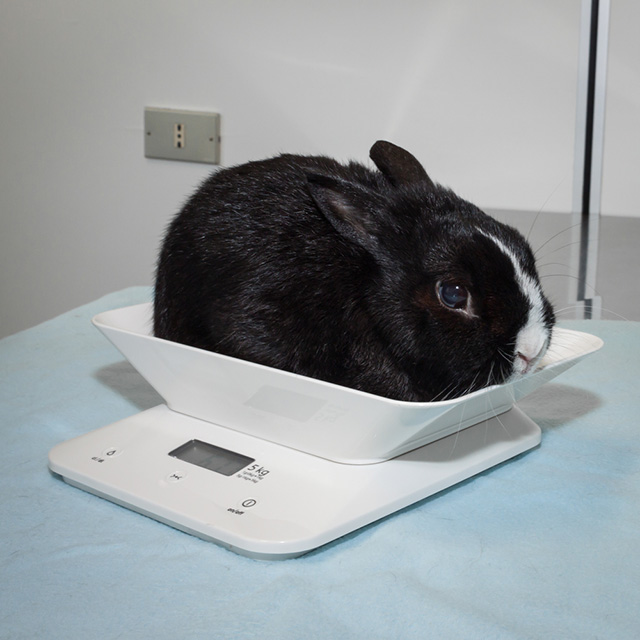Obesity is a growing problem in rabbits, especially in females, and may lead to other problems such as matted droppings, creating a perfect environment for maggot infestations or fly strike or fatty liver syndrome.
Preventing obesity in rabbits
Most health issues seen in rabbits are either due to poor nutrition or care aka husbandry.
Rabbits eat only plants, therefore they are known as herbivores. This means that they require a high fibre content in their diet. A good diet for a rabbit includes good quality hay, lots of fresh leafy greens, and some fresh vegetables and fruit. A small quantity of pellets can also be added to their diet. Pellets should not make up more than 25% of your rabbits daily intake as they don’t contain enough fibre and are high in energy which means that feeding too much can make your rabbit overweight.
Lots of fibre will not only keep your rabbits weight down, it also ensures good fermentation in the gut encouraging the right sorts of microorganisms which keep the gut functioning, it assists in the movement of food along the gut making sure your rabbit doesn’t become constipated and keeps their teeth nicely ground down to prevent dental problems.
To assess whether your rabbit is the right weight or not feel around their ribs. If there is a small covering of fat over the ribs and the ribs can be easily felt without too much digging then this is the right weight for your rabbit. If there is too much fat over the ribs this will make it difficult to feel them and your rabbit is overweight and will need to have their diet changed. If you are concerned that your rabbit is overweight, ask your veterinarian about putting your rabbit on a diet as a drastic change is not the best approach and supervision may be required. Weighing your rabbit every 2 weeks will tell you if there has been a weight change.
Plenty of exercise is important in managing a rabbits weight just like humans. Ideally your rabbit should be allowed to run and roam around an exercise area for at least 1 hour daily.

